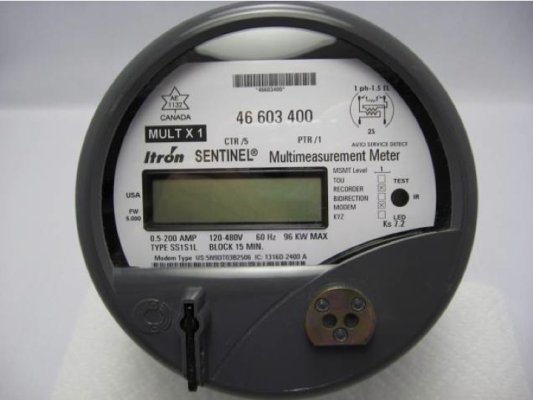Here in Texas Metroplex, Oncor is installing new smart meters to measure monthly electric usage and taking out the 50-year-old analog meters. There has been a hullaboo from some people saying that they are getting a bill 2,3,4 times as large as prior bills. I smell two rats. (1) Either the meters' software has a flaw or (2) some lawyers are smelling a big settlement created by a "flaw" that no one can duplicate. A possible 3rd rat is that people complaining had a defective analog meter and now they're caught.
I understand that Smart Meters have been installed in other places, specifically California. Any feedback? We're trying to get them to do a side by side test with the old meter; we'd like to prevent the large shock and awe bill BEFORE we get it. So, I'd appreciate any comment pro or con about these smart meters.
Oncor - Press Releases
I understand that Smart Meters have been installed in other places, specifically California. Any feedback? We're trying to get them to do a side by side test with the old meter; we'd like to prevent the large shock and awe bill BEFORE we get it. So, I'd appreciate any comment pro or con about these smart meters.
Oncor - Press Releases

